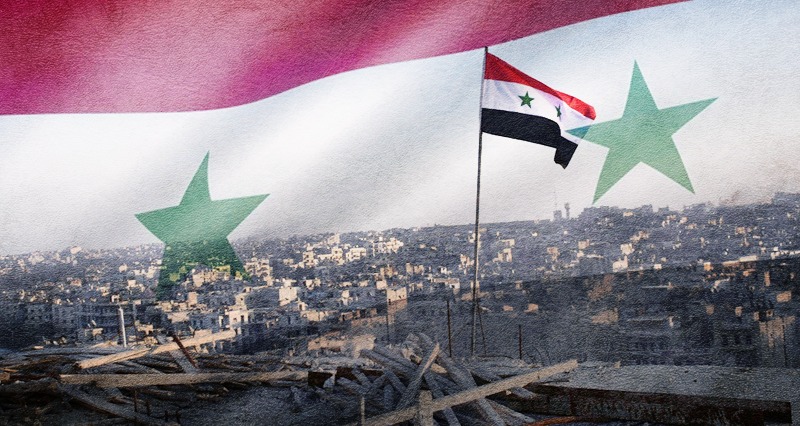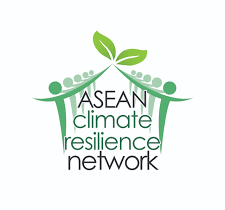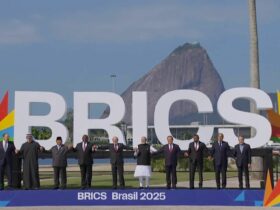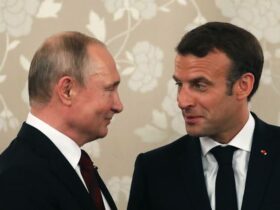At dawn on February 6, a terrible earthquake devastated large areas of southern Türkiye and northern Syria, causing considerable loss of life in both countries. The toll continues to rise. The tragedy revealed discriminatory policies, in particular on the part of the United States, and of the European Union in its wake, engaged since 2011 in a polymorphic war against Damascus, but above all coupled with a deadly blockade which takes the form of unilateral “sanctions” which are particularly devastating, especially for the population.
Today a huge movement is taking shape and gaining momentum. It now calls for the lifting of coercive measures and the blockade. States have decided to override the prohibitions adopted in violation of international law and engage in a process of aid and solidarity that must be made irreversible.
On all of these aspects we asked three questions to Rudolf el-Kareh. He is a University Professor and has taught in Lebanon, France and Canada. He has assumed many public responsibilities and was notably General Coordinator of the Lebanese National Conference on Major Hazards, a member of the National Commission on Cluster Bombs and of the Lebanese Delegation to the XII UN Conference on Cluster Bombs submunitions.
What is your evaluation on the damage and the developments about international help?
First of all, we must emphasize the extraordinary and immediate mobilization of the Syrian State institutions and the immense solidarity demonstrated by the multi-millennial Syrian society whose resilience needs no longer to be proven.
Despite twelve years of lawless war against Syria, this surge of nationwide reaction to a natural disaster of such magnitude was remarkable. And this is done despite the enormous damage caused to the infrastructure and facilities by an illegal blockade and iniquitous measures that are akin to the worst medieval sieges decided by a block of self-proclaimed “international community” states which correspond approximately to “friends of Washington”.
The second striking fact in this “collective West” – which now corresponds to the Atlanticist bloc where Europe has been gradually diluted – was the discriminatory approach (let’s avoid qualifiers, the facts speak for themselves) towards a region hit by such distress and whose history has been profoundly altered by the colonial divisions born of the two so-called world wars.
Let us pass quickly on to the prevailing printed press and the audiovisual media. The treatment of formatted information, especially in the European Union, is in the wake of the mediocrity of the political treatment and displayed a harsh discrimination. Almost all the media coverage was devoted to Türkiye on Monday, February 6.
Some media outlets have succeeded in either completely ignoring the terrible effects of the earthquake in Syria or in treating them as if they were an unimportant epiphenomenon. A sort of obscene victims’ classification.
This obscenity deployed its vulgarity without shame in the midst of a natural disaster with its repetitive ideological narrative of the Atlantic on the Syrian crisis. Without any restraint, instead of considering the fate of the victims and the human dimension of a tragedy affecting both countries whose means of dealing with it are disproportionate, some “worried” about whether the potential humanitarian aid provided to Syria “would be captured by the regime”, others indulged themselves with an unlimited indignity in giving quantitative evaluations of this “capture”. The most immoral aspect of the media coverage on Syria has been the dehumanization of a tragedy that is about human herself at the very the first place.
It is necessary to again humanize the perspective on Syria and on this devastated region of the world.
What about the political aspect? What about the aid? Is it disinterested?
The political approach has not been abandoned. That the European Union, which likes to flaunt its “mechanisms”, has assured Turkey of its help could be very commendable in itself, were it not for the ulterior motives linked to Ankara’s current position in the global conflict taking place in Ukraine where the Turkish authorities continue to distinguish themselves by refusing an automatic alignment with NATO. So, there is talk of the earthquake in Turkey and Syria, but help is offered only to Ankara. Not to mention the constant denial of reality and the existence of Syria, its state and society. Instead they talk about “thoughts to the people of northern Syria” or “tweets” only stating that Türkiye was “devastated” by the earthquake. They have to abandon the approach of ignoring the Syrian people.
As for higher motives, let’s quote one by Annalena Baerbock, the German Minister of Foreign Affairs, calling for the reopening of illegal crossing points between Turkey and Syria in order to deliver hypothetical aid. Ms. Baerbock simply proposes to violate the decisions of the Security Council limiting the crossing point, to bypass the Syrian state contrary to the UN Charter, which demands the recognition of the sovereignty and independence of states. Let’s remember that the international organization is an association of states and that Syria is one of its founders. Especially Mrs. Baerbock pretends to forget that the area she is addressing is under the control of terrorist organizations according to the UN.
The most grotesque buffoonery thing in this tragic context came from occupied Palestine when Netanyahu claimed to be ready to respond to a purported request for help from Damascus. When it comes to higher motives, you cannot find something better than that. The UN administration claims not to have the financial means to help Damascus, while ignoring a damning report by UN Special Rapporteur Alena Douhan on Western “unilateral sanctions” against Syria. Ms. Douhan describes them as war crimes, and urges “sanctioning states to lift unilateral sanctions as they perpetuate and exacerbate the destruction and trauma suffered by the Syrian people since 2011.” Yes, the Syrian people, that this collective West is striving to deny.
The UN administration has postponed the examination of this report by the Human Rights Council in Geneva until next September…
But Washington and its spokespersons reached the epitome of cynicism when they spoke of the earthquake as if it had hit only Türkiye omitting the very existence of the disaster in Syria and without a single word of compassion for its victims. The Vatican told us that the Pope was “deeply saddened (…) and that he sincerely offers prayers for the souls of the deceased”…
This brief overview alone demonstrates how human rights are immorally instrumentalized for geopolitical purposes and the extreme political violence.
Have there been any calls to end the sanctions?
Of course. Of course. But I would like to remind you first of all that I reject the term “sanctions” used by its promoters. These measures are totally illegal and unilateral. And what right do these promoters have to set themselves up as exemplar of virtue when their ancient and recent history is marked by monstrous violations of human rights? And who entitles them to act as the authority in terms of international law?
The only international body entitled to talk about sanctions is the United Nations under the provisions of the Charter. The measures adopted by the United States and the European Union are violations of international law in the strict sense.
That being said, not only have appeals been made, but immediate initiatives have been taken by several countries to help Syria which has been under a cruel blockade for years. And this blockade, an American version of medieval sieges aimed at starving people in order to make them surrender, is a crime against humanity. Ms. Douhan’s report is in fact an indictment. The law called “Caesar” is a US national provision that Washington wants to impose on the world by threat and blackmail. This blockade must stop. It must stop strangling Syria and its neighborhood -especially Lebanon and Iraq- and preventing it and its neighbors from developing. Several countries have taken the initiative including countries that are allegedly friends of the US such as the United Arab Emirates.
The first aid in terms of material and specialists came from Algeria at the very first hours of the disaster, followed immediately by Russia, China, Iran and India. Lebanon, wracked by a serious and triggered economic crisis, opened its ports and airport infrastructures to help Damascus and sent expert teams from the Civil Defense and the Army to Aleppo and the damaged Turkish regions. Iraq, ignoring Washington’s dictates, opened its borders and its fire brigade is now working on the ground. Egyptian President Sissi, like many heads of state, made direct contact with his Syrian counterpart, and one of the Egyptian television channels reflecting government opinion blamed President Biden “for the blood of the Syrian victims.”
But one of the strongest and indicative reactions came from the Middle East Council of Churches, an institution that brings together all the Eastern Churches and Patriarchs. It called for an end to the blockade against Syria and the immediate lifting of the “sanctions”, “otherwise their continuation could be mean a crime against humanity”. No surprise. In this region of the world the churches play a considerable role in the construction of social bonds and their secular referents in the moral domain.
A broad movement is emerging today in favor of ending the blockade of Syria which has been subjected for years to a bloody offensive and occupation particularly by American troops who further aggravates the humanitarian crisis regularly plundering the country’s agricultural and oil resources. Turkey played a significant role in this crisis, but it seems that reason should once again prevail. The tragedy caused by the earthquake can certainly be an opportunity to bring together again neighboring states that imperialist greed has led to deadlock as long as the political will and courage are present.
I would like to conclude here by quoting the words that Father Elias Zahlaoui, parish priest of Notre-Dame of Damascus, said to me the following day after the disaster: “I don’t expect anything more, neither from the Vatican nor from all the West that calls itself civilized. What an irony! What an infamy! But we must stay strong. Hope is a confidence…”
Previously published in French here, translation by UWI.

















Leave a Reply